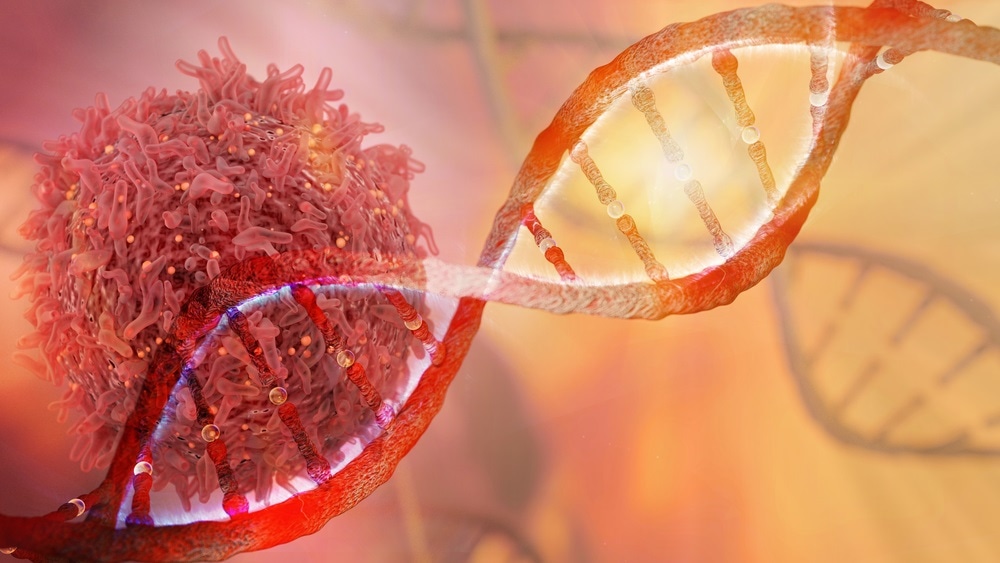The go-ahead has been given for the first trials using the gene-editing technique CRISPR as an alternative therapy for treating cancer.
Beginning with a patient with multiple myeloma, and another with sarcoma who had both relapsed after undergoing standard treatment, these two individuals will be the first people to be treated with CRISPR. The method will be used to genetically modify their immune system cells, which will then hopefully target and destroy their cancerous cells.
 Image Credit: CI Photos / Shutterstock.com
Image Credit: CI Photos / Shutterstock.com
A world-first
The University of Pennsylvania has been given the okay to begin a clinical trial that will treat 18 people in total. The trial is the first in the world that will use the controversial gene-editing technique, CRISPR, to hopefully treat patients who may be resistant to conventional therapies. If the trial goes well, it could mean that the future of disease management, not only for cancer, could completely shift.
Currently, researchers haven’t released any details on the trial’s preliminary findings. However, it is hoped that the method will provide not only an alternative treatment method for those less responsive to current methods, but also a treatment option that has fewer and less severe side effects. This should improve patients’ quality of life during the treatment process.
What is CRISPR?
CRISPR technology allows scientists to make edits to DNA sequences and modify the function of targeted genes. Its full name, CRISPR-Cas9, refers to the use of the Cas9 protein which is exploited by the technique to behave like a pair of scissors, cutting strands of DNA at specific points which are located with RNA.
It is this cutting that allows scientists to alter genetic information. The cell responds to the cut by going in to fix this break in DNA, and this fixing may disable the gene. It may also repair an error or even insert a new gene.
The gene-editing technique has already given birth to several genetic tools, such as those for editing a single nucleotide base, or for tracking specific sections of DNA through adding a fluorescent protein to a certain spot. In addition, the technology is being used successfully to switch specific genes on and off for various purposes.
A controversial past
While the technology is very new, it has already sparked much controversy. Recently, scientists in China claimed to have used the method to edit the DNA of a pair of twin embryos. The team had done this in order to make an edit to the unborn babies’ DNA that would theoretically make them resistant to contracting HIV. The twins were reportedly the first human beings to be born genetically modified.
The alleged experiment caused much backlash due to the fact that this kind of use of the technology opens the door for things like designer babies, which is seen as an unethical use of the science.
It also holds huge implications due to the fact that the offspring of the twins will inherit the genes that were originally modified. There is also a concern that genes rarely act to serve a single purpose; the editing of a gene can cause unforeseen consequences due to its unknown functions.
Using CRISPR to treat disease
Researchers believe that CRISPR could be used to treat and prevent numerous diseases, not only cancer, as is currently being explored. There is a huge opportunity to develop technology to treat diseases that have a known genetic basis.
Earlier this year saw CRISPR being used for the first time inside the human body in a study that aimed to develop a cure for Leber congenital amaurosis, an inherited form of blindness. Other diseases that have a strong genetic cause could also theoretically be targeted by this technology, potentially developing cures for diseases for which there currently are none.
In terms of cancer treatment, CRISPR is being used as a method that will hopefully be more accurate and reliable at targeting and destroying all cancer cells. This could potentially increase survival chances and reduce the incidence of adverse side effects associated with current therapies.
However, the development of the use of CRISPR in this setting is still in its early stages. Years of further testing will be required to ensure the method not only works but is also safe.
Source:
First-In-US trial of CRISPR-edited immune cells for cancer appears safe. Eurekalert. Available at: https://www.eurekalert.org/pub_releases/2019-11/uops-fto110519.php